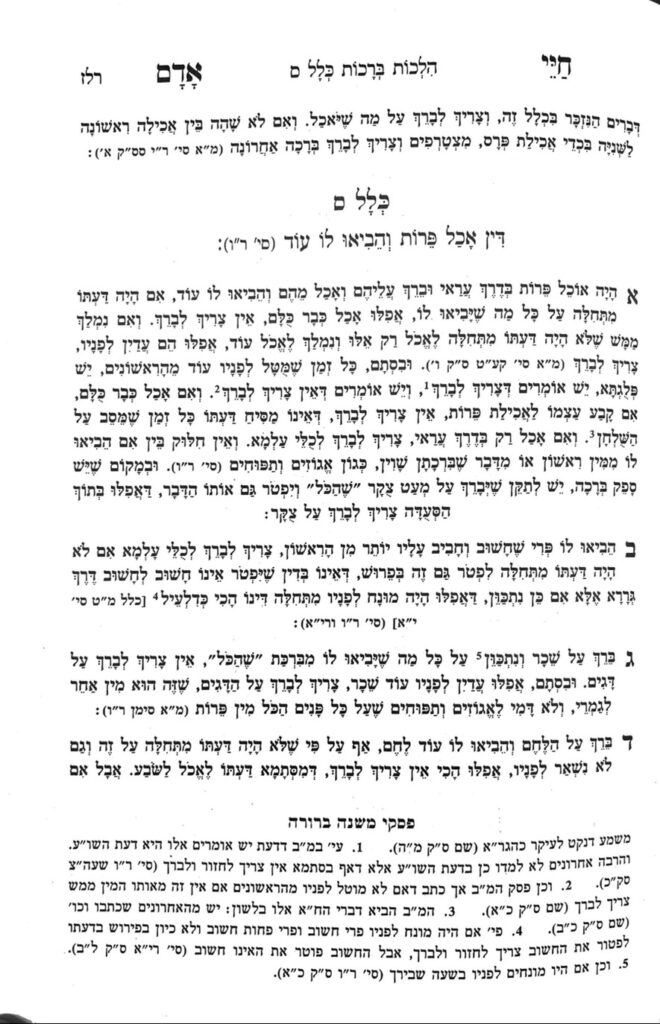We need to clarify a few points in siman 15 and 16. The Chayei Adam wrote that if one ate a kezayis in multiple mekomos, as long as it is consumed within a k’dei achilas pras, they combine to require a bracha achrona. It Is important to point out that the Chayei Adam does not argue that due to being only a short interlude it is not a shinui makom, because he wrote at the beginning of the klal (in siman 2) that once a person effects a shinui makom, they immediately require a new bracha. Rav Yaakov Emden, in his sefer Mor U’ketziah, writes that if one leaves their makom for a very brief amount of time, it is not considered a shinui makom, and the Aruch Hashulchan seems to concur. However, the Chayei Adam and Mishnah Berurah do not agree, and we follow their opinion on this point.
We learned that the Mishnah Berurah, among others, holds that there is a stam daas (inclusion by default) nowadays which precludes any shinui makom between rooms of the same house (see shiur 1141). We also learned of other scenarios in which one would not lose their bracha rishona, such as if others are still at the table (shiur 1140), or if the food requires a bracha achrona in its original place. In these cases, even though they will not lose their bracha achrona, they need to consider the possible issue that they will forget to recite their bracha achrona, as we learned at the beginning of the klal (see shiur 1137). Therefore, it is muttar lechatchilla to step out momentarily, or for the purpose of a mitzvah, but it is bedieved to step out for longer.
The Chayei Adam follows the opinion of the Rama regarding shinui makom, that there is a difference between foods which require a bracha achrona in their original place and those which do not. The Shulchan Aruch paskens like Rav Sheishes in the Gemara, that there is no difference in the types of food, and all foods require a new bracha rishona if a shinui makom is effected. The Ben Ish Chai, Kaf Hachaim and Rav Ovadia Yosef all point out that due to the machlokes, one should avoid any shinui makom. Rav Bentzion Abba Shaul suggests one should recite a bracha achrona before effecting a shinui makom, and a new bracha rishona when they return. He does not consider it a bracha she’eina tzricha, because it is necessary for the purpose of avoiding a halachic issue. The other Sefardi poskim disagree with him, and maintain that one should avoid the issue by not leaving their makom.
Summary
- Even the most brief shinui makom will require a new bracha rishona.
- In all of the scenarios in which one does not lose their bracha rishona when effecting a shinui makom, one must still be mindful to not forget their bracha achrona. Therefore, although it is muttar to effect a brief shinui makom, it is only bedieved to effect a longer shinui makom, unless it is for the purpose of a mitzvah.
- The Sefardi poskim do not distinguish between foods which require a bracha achrona in their original place and those which do not, and hold that all foods will require a new bracha rishona. However, due to the potential issue of bracha l’vatala, as many rishonim hold that no new bracha is needed, one who follows Sefardi minhagim should avoid a shinui makom in all circumstances.



